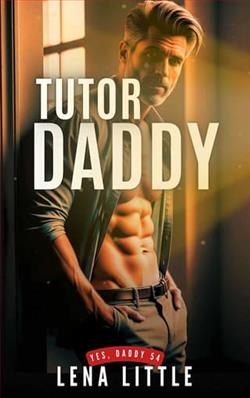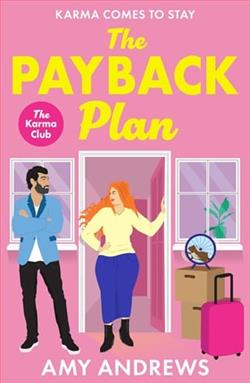Page 5 of Watch Me Burn
My eyes twitched. I could sense the hungry lenses from the corner of my eye—narrowing, blinking, staging my client as if they were a freaking animal at the zoo.
Balling my hands into fists, I wanted to yell for the madness to stop. But I understood it was expected; we were in a jungle.
The judge knew it, the jury knew it. Our justice system was supposed to champion reform, giving society’s lost souls a shot at redemption, and victims their fair day in court. In a land smeared with corruption, this was supposed to be our sanctum.
Yet, here I sat, facing another splintered bench, encircled by a sea of faces more invested in theatrics than truth. I could already hear the gossip: Why’d he rock up in those torn jeans? And a stained shirt too?
They didn’t need to hush like school kids; I was asking the same damn questions myself. I’d reminded Jacob beforehand of how important it was to dress professionally. Showing up with bed head and rumpled clothes didn’t quite translate to remorse. Nor did it show value, which is what all the people who crowded this room were here to determine.
Was this sixteen-year-old worth condemning to a life of hell and shitty living conditions? Where he’d be caged in a matchbox with God-knows-who as a cellmate, spending his days on a rock-hard slab that couldn’t pass as a mattress?
All it took was a blink of an eye to stamp this fate on someone’s kid. Sure, Jacob was a repeat offender who’d likely screw up and land back in this very courthouse months later, but was it so wrong to be the one person who had faith in him and hoped that therapy over prison could make a difference in one troubled teen’s life?
“Counsel, you’re arguing against the twelve-month sentence against Mr. Wyatts?” the judge declared more than questioned. He scooped a sweaty hair strand out of his eye while adjusting his glasses.
“Indeed, Your Honor. Based on the evidence available, I believe his sentence should be reduced to three months of community service and six months of weekly psychotherapy.” Gasping could be heard from the public pews, but I didn’t allow my voice to break. I swayed into a monologue on how we should seek to teach, not punish, as repeat offenders only serve more harm to a community when they’re robbed of proper guidance. I could see the side-eyes that the jury flashed. The way onlookers hissed among themselves. My freckled cheeks flared even brighter than usual, and I felt my weight tugging at the seams of my pleated pantsuit. The whole room blended into a blur of figures of black and navy, severe gazes that judged my every gesture and word.
“Stealing. It’s one of the biggest market losses that occur every year in America,” I went on, “resulting in billions of dollars in economic loss.” Lacing my fingers, I took in a deep breath. “So how do we rid ourselves of this ongoing deficit? Well, I say it starts with looking at the issue as a cultural and psychological problem instead of an economic pest. Real people and their circumstances cause this to happen. When our first response to a national crisis is to punish, we’re putting a bandage on the end result, not offering any meaningful solutions.”
Strutting around the court’s floor, I felt every ounce of pressure on my joints. My body was so tense that I could’ve been the one with prison time over my head. Unlike the velvet-robed man with a wooden hammer in his hand, I didn’t view this hearing as another day on the job. I saw a young boy, apple-cheeked and doe-eyed like the boy I once observed being whisked behind bars. The boy I used to love more than life itself.
He called me the strongest person he knew. And then stripped me of all that pulsated my heart.
When they hauled Ethan Wayne from the courtroom before me, charging him with the murder of my father, I found myself voiceless for weeks. I didn’t return his calls, or anyone’s for that matter. Holed up in my room, my gaze locked onto the ceiling, I may well have appeared like a mental wreck—and perhaps at that time, I was.
But that’s all in the past now. I’d rediscovered my voice and managed to forge ahead, transforming my life to stand for those silenced by the system—as an attorney.
Shaking off the horrific memory, I tucked my auburn strands behind my ears and shuffled back to my seat. We were going on recess. Without uttering another word, I swiped my purse and stalked down the aisle.
Just as I approached the imposing double doors, a voice rang out. “Ms. Hudson!” Swiveling on my heel, I spotted a man gesturing at me with palpable excitement.
“That’s me,” I responded. The man was tall, immaculately put together, with a smattering of stubble and neatly trimmed black hair. He bore a faint resemblance to a Clark Kent type—sans the muscles, of course.
“I watched your argument. I’ve got a hunch you’re going to pull this one off.” He smiled, running his hands through his hair in a bashful gesture, as if this were the trial of the century.
Clutching my bag a little tighter, I responded, “Thanks,” hoping to make a swift exit for my midday caffeine boost. But he followed me.
“You were truly compelling up there. Your comments on underrepresented youth, and how we perpetuate the poverty cycle . . . it felt personal, if I may say so.”
I halted abruptly, swiveling to face him.
“And where are you going with this?” I countered sharply. I’d carved a niche for myself as a public defender, thinking my achievements in law would deter idle gossip. However, occasionally, individuals like him—or perhaps I was wrong in this rare instance—would question me about the incident from fifteen years prior. They remembered the traumatized girl, the one who sobbed incoherently as her best friend and childhood sweetheart was ushered out of the courtroom.
The Clark Kent look-alike shuffled his feet, then met my eyes. “Well, my name is Will. Will Jackson, to be precise.” He extended a glossy business card from his pocket, which I declined.
“You’re a journalist.”
He shook his head.
But so what?
“Listen, if you’re attempting to headhunt me for your firm—”
“—I’m not,” he interjected. “As a lawyer, I understand better than most the necessity of good rapport with your colleagues. I wouldn’t wish to ensnare you in a contract at our first meeting.”
My arms crossed defensively. “Then what do you want?”
Surely, he wasn’t anticipating a candlelit dinner laden with white truffles. By all appearances, I was your typical Boston lass: round-faced, normal body, sporting midlength hair and blue eyes. Neither stunningly beautiful nor markedly plain, I existed comfortably in the realm of the average, and I embraced it. The cutthroat culture of Boston’s skyscrapers held no appeal for me, which is why I quickly grew weary of relentless attempts to sign me on to these inflated firms.















